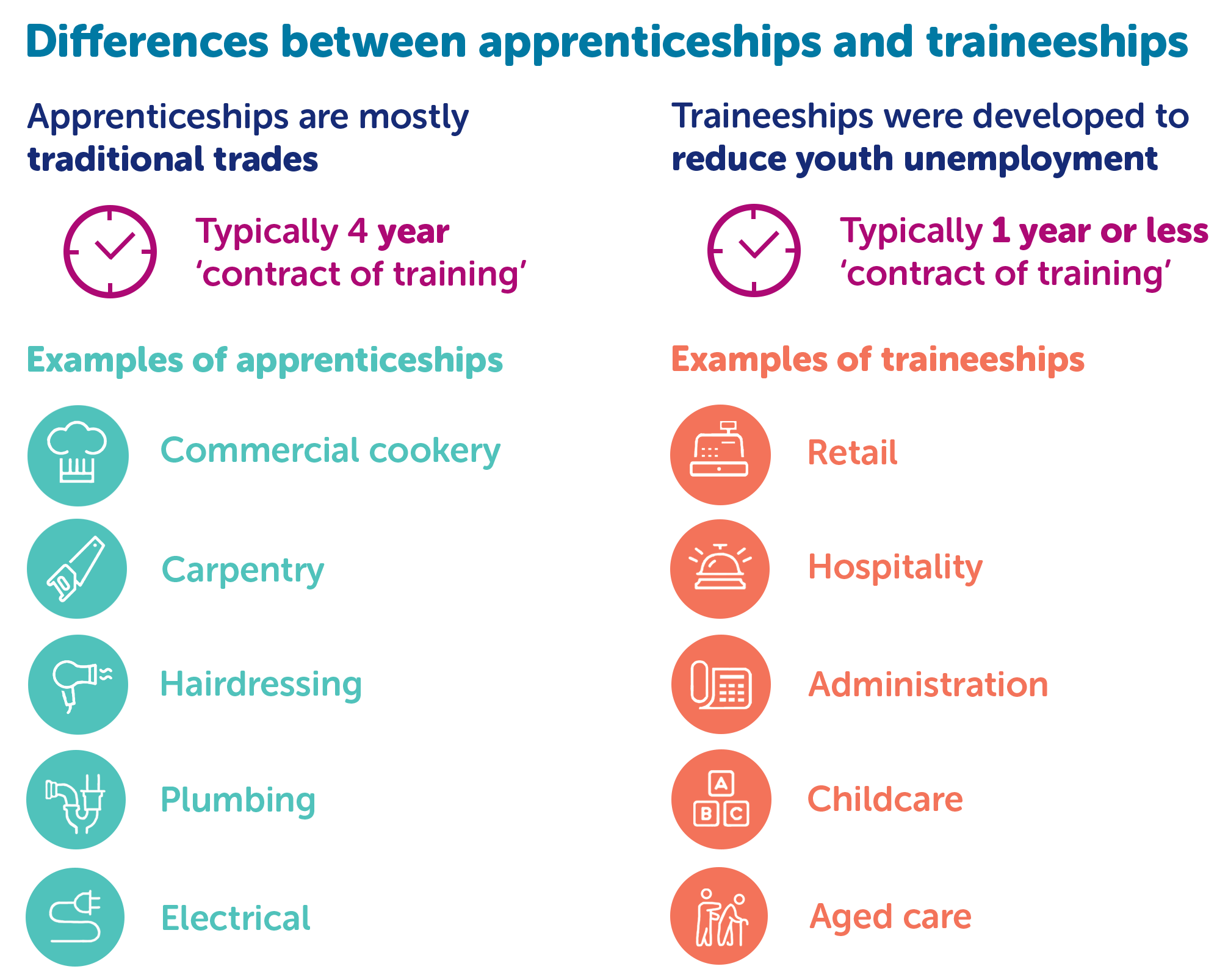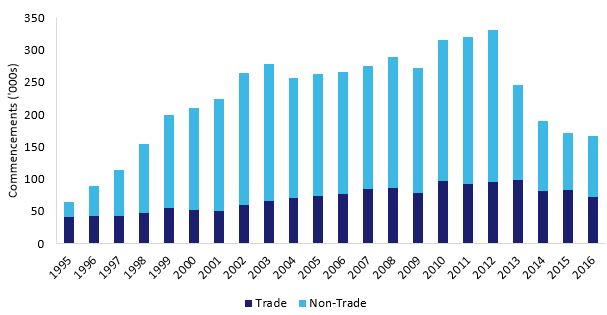Finding the truth in the apprenticeships debate

The term ‘apprenticeship’ is often used in relation to both apprenticeships and traineeships, creating a misleading picture of the state of the two systems.
This report debunks some high profile claims of Australia experiencing an apprenticeship crisis and shows that in some cases, apprenticeship commencements are growing.

Text alternative: Differences between apprenticeships and traineeships
Apprenticeships are mostly traditional trades – typically 4 year 'contract of training'.
Examples of apprenticeships:
- commercial cookery
- carpentry
- hairdressing
- plumbing
- electrical.
Traineeships were developed to reduce youth unemployment – typically 1 year or less 'contract of training'.
Examples of traineeships:
- retail
- hospitality
- administration
- childcare
- aged care.
What is the real story behind apprenticeships?
Our analysis uses National Centre for Vocational Education Research (NCVER) data to separate commencements in trade (mostly apprenticeships) and non‐trade (mostly traineeships) training courses. We have found that when looking at trades alone, the apparent decline in ‘apprenticeship’ commencements is not nearly as serious as most claims suggest.
Trade (apprenticeship) vs. non-trade (traineeship) commencements 1995-2016

Text alternative: Trade (apprenticeship) vs. non-trade (traineeship) commencements 1995-2016
This chart shows number of commencements of apprenticeships and traineeships over the years from 1995-2016. It shows an general increase in apprenticeships and traineeships from 1995 to 2003, a small dip, then an increase until 2008. Numbers are lower in 2009, then increase for 2010-12. Numbers then drop considerably from 2013-16, though numbers are still higher than in 1995.



